“The film presents the story of the “war of the currents” between electricity titans Thomas Edison, and partners George Westinghouse and Nikola Tesla, which determined whose electrical system would power the modern world. Edison has decided on Direct Current (DC) but it is limited in range and expensive. Westinghouse sets out to prove Alternating Current (AC) can work over longer distances at significantly lower cost. Edison and Westinghouse compete to get cities across the United States to use their system. Edison suggests that AC is dangerous and engages in a publicity war, while Westinghouse stands behind the technical merits of AC. As Edison struggles to find ways to make DC more affordable, Westinghouse attempts to get the high voltage AC system to work with motors.
The competing systems come to a head as they both put forward proposals to illuminate the Chicago World’s Fair.” Wikipedia
Originally scheduled for commercial release in 2017, the Weinstein scandal kept the movie’s marquis “unlit” (excuse the pun) after it’s showing at the Toronto Film Festival. The rights were sold off when the Weinstein company was dissolved. I haven’t seen it, but the reviews don’t sound too promising, making all sorts of puns around the dullness of the film. However, as George Westinghouse was born on October 6, 1846, the tie in was too good to pass up.
BTW, this is what the real Westinghouse looked like:

Today is also the birthday of Reginald Fessenden, who worked for both Edison’s and Westinghouse’s companies.
According to Mary Bellis in her article, “Reginald Fessenden and the First Radio Broadcast,” on ThoughtCo.com:
“In the late 1800s, people communicated by radio through Morse code, with radio operators decoding the communication form into messages. Fessenden put an end to this laborious manner of radio communication in 1900, when he transmitted the first voice message in history. Six years afterward, Fessenden improved his technique when on Christmas Eve 1906, ships off the Atlantic coast used his equipment to broadcast the first trans-Atlantic voice and music transmission. By the 1920s, ships of all kinds relied upon Fessenden’s ‘depth sounding’ technology.”
BTW: Fessenden was born in Canada! (Milton in what is now the province of Quebec) Britannica.com
Now to highlight some women born on the 6th of October. They are tied together by music, social consciousness, activism, and achievements in their time not often “afforded” to women.
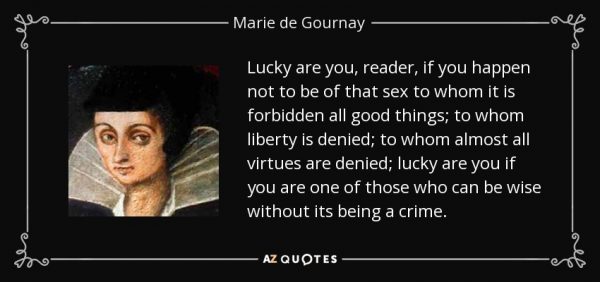
1565 Marie de Gournay (d. 13 July 1645) wrote several feminist essays including The Equality of Men and Women/Égalité des hommes et des femmes (1622) and The Ladies’ Grievance /Grief des dames (1626). She viewed education as the key to women’s empowerment. Self-taught in Greek and Latin, she also translated classical texts, and edited the last essay collection of the French Renaissance philosopher, Michel de Montaigne.
1591 Settimia Caccini (d. ca. 1638) was born into a musical family; her father, Giulio, and older sister, Francesca, were well-known singers and composers. Unlike her sister, she did not publish a collection of her musical works. Rather, she gained fame for her voice and musical interpretations. After her death, a number of arias attributed to her were included in publications.
1729 Sarah Crosby (d. 29 October 1804) Converted by the writings of John Wesley, she was one of the first female Methodist preachers. She initially travelled around England as a missionary, leading small group meetings. However, when approximately 200 people came to a meeting in 1761, the individual-based small class meeting style of instruction would not work. So, she improvised by preaching; a position of female power not yet approved of within Methodism. As a result of her and others’ activism within the movement, she was among the first group of women licensed by Wesley as preachers.
1820 Johanna Maria “Jenny” Lind (d. 2 November 1887) The “Swedish Nightingale,” became an American sensation during her tour of the United States, promoted by P. T. Barnum. Virtually unheard of in America (unheard even by Barnum who noticed how well the soprano opera singer filled the performance halls of Europe) before Barnum’s promotional campaign, she arrived to cheering throngs in 1850. Her first concert, in New York City, was so popular, Barnum made even more money by auctioning off tickets. Lind was as well known for her philanthropy as her voice.
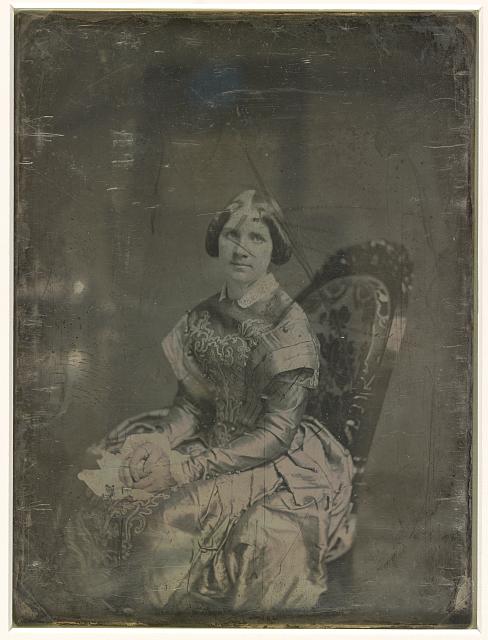
image taken in Matthew Brady’s Photography Studio, 1850 (from Library of Congress)
1915 Carolyn Elizabeth [Drucker] Goodman (d. August 17, 2007) was already involved in social activism when her son, Andrew Goodman and two other civil rights workers, James Chaney and Michael Schwerner, were murdered by the Ku Klux Klan in Neshoba County, Mississippi, in 1964. She and her husband founded the Andrew Goodman Foundation in his honour. She was a prominent figure in the civil rights and other social action movements.
In her New York Times obituary, “her son David recounted a characteristic incident, which happened in 1999, during the public protest over the death of Amadou Diallo, the Guinean immigrant shot and killed by New York police officers. A colleague came into Mr. Goodman’s office to tell him that his mother had just been seen on television, being taken off to jail.
“I said, ‘Well, that happens from time to time,’ ” Mr. Goodman recalled.” His mother was almost 85.
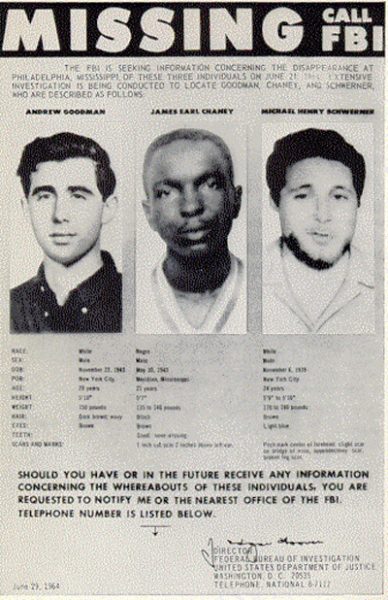
The murders of civil rights workers deeply moved the nation, leading to the passing of the Civil Rights Acts in the 1960s. The murders of people like Chaney, Goodman, and Schwerner were memorialized in the folks songs of the era. An example is “The State of Mississippi,” written and performed by Phil Ochs:
Here’s to the state of Mississippi,
For underneath her borders, the devil draws no lines,
If you drag her muddy river, nameless bodies you will find.
whoa the fat trees of the forest have hid a thousand crimes,
the calendar is lyin’ when it reads the present time.
Whoa here’s to the land you’ve torn out the heart of,
Mississippi find yourself another country to be part of!
And here’s to the people of Mississippi
Who say the folks up north, they just don’t understand
And they tremble in their shadows at the thunder of the Klan
The sweating of their souls can’t wash the blood from off their hands
They smile and shrug their shoulders at the murder of a man
Oh, here’s to the land you’ve torn out the heart of
Mississippi find yourself another country to be part of
And here’s to the schools of Mississippi
Where they’re teaching all the children that they don’t have to care
All the rudiments of hatred are present everywhere
And every single classroom is a factory of despair
There’s nobody learning such a foreign word as fair
Oh, here’s to the land you’ve torn out the heart of
Mississippi find yourself another country to be part of
And here’s to the cops of Mississippi
They’re chewing their tobacco as they lock the prison door
Their bellies bounce inside them when they knock you to the floor
No they don’t like taking prisoners in their private little war
Behind their broken badges there are murderers and more
Oh, here’s to the land you’ve torn out the heart of
Mississippi find yourself another country to be part of
And, here’s to the judges of Mississippi
Who wear the robe of honor as they crawl into the court
They’re guarding all the bastions of their phony legal fort
Oh, justice is a stranger when the prisoners report
When the black man stands accused the trial is always short
Oh, here’s to the land you’ve torn out the heart of
Mississippi find yourself another country to be part of
And here’s to the government of Mississippi
In the swamp of their bureaucracy they’re always bogging down
And criminals are posing as the mayors of the towns
And they hope that no one sees the sights and no one hears the sounds
And the speeches of the governor are the ravings of a clown
Oh, here’s to the land you’ve torn out the heart of
Mississippi find yourself another country to be part of
And here’s to the laws of Mississippi
Congressmen will gather in a circus of delay
While the Constitution is drowning in an ocean of decay
Unwed mothers should be sterilized, I’ve even heard them say
Yes, corruption can be classic in the Mississippi way
Oh, here’s to the land you’ve torn out the heart of
Mississippi find yourself another country to be part of
And here’s to the churches of Mississippi
Where the cross, once made of silver, now is caked with rust
And the Sunday morning sermons pander to their lust
The fallen face of Jesus is choking in the dust
Heaven only knows in which God they can trust
Oh, here’s to the land you’ve torn out the heart of
Mississippi find yourself another country to be part of
Phil Ochs, 1964
What I’m:
reading: (consuming) in paper form (because I still can through the local library system)
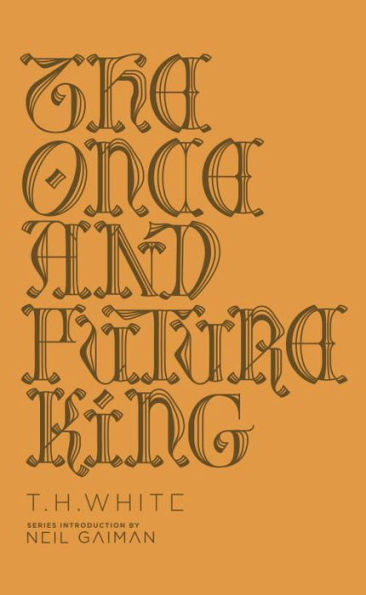
the 2016 reissue of The Once and Future King by T. H. White. This publication is a part of a hard cover series by Penguin Books of 6 (20th century) definitive works of “speculative fiction.” Neil Gaiman pens a fantastic introduction to the series and this particular volume.
I’ve always felt is better to read the book(s)before seeing the movie(s) (spoilers and all). Seeing the movie first tends to set the actors, rather than your imagination, in your memory.
My images of T. H. White’s Sword in the Stone come from the 1963 Disney animated version. I was a precious reader, but it was a bit later I read the stand-alone version of the tale. And, later again when I read the complete work, The Once and Future King. Seemed like time for a reread.
AND (as I tend to inhale books, consume them, binge read) I’m looking at Ursula Le Guin’s 1998/2015 Steering the Craft: A 21st-century Guide to Sailing the Sea of Story. She writes this is “a handbook for story tellers . . . essentially a workbook.” Perhaps the nudge I need to write down at least one version of the stories that roam around in my head. I have just sent the characters off on another tangent, a re-invented quest, having never really committed to paper or screen their thousands of previous adventures.
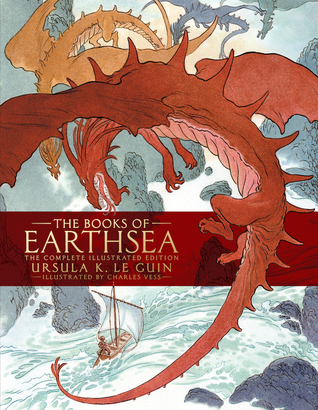
I also have a lovely illustrated volume of her EarthSea Trilogy waiting for a re-read. Thanks to the excellent library system which “bundles” multiple libraries into a wonderful lending repertoire.
going to watch: (along with my retro tv excursions into Danger Man/Secret Agent, The Prisoner, The Saint, and Peter Gunn.)
season one of the great sci-fi show, Babylon Five (1994-1999). I just picked the DVD from the library yesterday.
I was always a big fan of the series. My interest was re-piqued due to the way channels pop in and out of our cable package. A recent addition was one that specializes in sci fi and grade b horror films.
I was thrilled to watch my first B5 in decades, and not only remember the characters and story arcs, but that specific episode. Wow! If asked about my memories of the show, I could recall settling in to watch the show (These were the days pre-our-ownership-of-a-vcr), character interactions, and the basic premise. To find myself so firmly and comfortably back in the story was one of my daily gratitudes.
listening to:
a friend updates my musical collection every 10 years or so. Not that all the albums and artists are super-recent – filling the gap between 2010 and 2019.

I’ve been “spinning:” Iron & Wine, Kiss Each Other Clean, Passenger, All the Little Lights, and Leonard Cohen, Popular Problems. With some Regina Spektor, Remember to Us to Life and What We Saw From the Cheap Seats. Another memory flash: hearing her for the first time in 2007 or 2008 and being blown away.
eating:

an anti-inflammatory diet (with the nightshade family of vegetables eliminated) to try and quell the dragon residing in my abdomen. I’m not endorsing or promoting this type of diet – just experimenting.
That’s it for Sunday October 6. I wonder what Sunday October 13 will bring? (Spoiler alert: e e cummings; “Happy Birthday;” L’Acadie/Acadia; and a story of miraculous survival and courage in the Andes after a plane crash. Or maybe something else.)

I'm listening . . . . . .